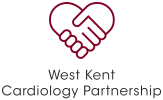
When Should I Get an ECG Test?
An ECG test, short for electrocardiogram, is one of the most common and useful tests in cardiology. It helps detect irregularities in the heart’s rhythm, structure, and overall function. Many people have heard of ECGs but aren’t sure when they might need one or what it actually involves. I often meet patients who have been referred for an ECG after experiencing symptoms such as chest pain or palpitations, while others come in simply for reassurance or routine screening. Understanding when to get an ECG and what it can tell you is key to protecting your heart health.
What Is an ECG Test?
An ECG records the electrical activity of your heart. Each heartbeat sends an electrical impulse through the heart muscle, triggering it to contract and pump blood. An ECG captures these signals and displays them as a line graph on a monitor or printed report.
This information allows cardiologists to assess whether your heart is beating normally, whether there are signs of strain or damage, and whether blood flow to the heart muscle is being restricted. The test is quick, safe, and completely painless. Small sticky sensors (electrodes) are placed on your chest, arms, and legs, connected to a machine that records your heart’s activity. The entire process usually takes less than ten minutes.
When Should You Have an ECG Test?
There are several reasons why a doctor or cardiologist might recommend an ECG test. Sometimes it’s used to investigate specific symptoms, and other times it’s part of a routine health check or follow-up for an existing condition.
1. If You Experience Heart-Related Symptoms
You should consider having an ECG test if you experience:
- Chest pain or tightness, especially during physical activity
- Irregular heartbeats or palpitations
- Shortness of breath
- Unexplained fatigue or dizziness
- Fainting episodes
- A fluttering sensation in the chest
These symptoms don’t always indicate a serious problem, but they can be early signs of conditions such as arrhythmias, coronary artery disease, or heart failure. An ECG is often the first step in identifying the cause.
2. If You Have Risk Factors for Heart Disease
Even without noticeable symptoms, certain risk factors make it sensible to have your heart checked. You may be advised to have an ECG if you:
- Have high blood pressure or cholesterol
- Have diabetes
- Smoke or previously smoked
- Have a family history of heart disease
- Are overweight or inactive
- Are over 40 and want to check your heart health
Early detection allows for preventive action, reducing the likelihood of future complications.
3. Before or During Certain Treatments
Cardiologists may also request an ECG before starting new medications or procedures that can affect the heart, such as some blood pressure drugs or general anaesthesia. This ensures your heart rhythm is healthy and safe for treatment.
4. As Part of Routine Heart Monitoring
For patients with diagnosed conditions such as arrhythmias, heart failure, or coronary artery disease, regular ECGs help monitor how well treatments are working and track any changes over time.
Types of ECG Tests
While most people are familiar with a standard resting ECG, there are other types that help monitor heart activity in different situations:
- Resting ECG: Records your heart’s activity while you’re lying down and relaxed.
- Ambulatory (Holter) ECG: Involves wearing a small portable monitor for 24 to 48 hours to track your heart’s rhythm during normal activities.
- Exercise (Stress) ECG: Taken while you walk or run on a treadmill to see how your heart responds to physical exertion.
Your cardiologist will decide which test is most appropriate depending on your symptoms and risk factors.
What an ECG Can Detect
An ECG provides vital information about your heart’s condition. It can identify:
- Arrhythmias: Irregular or abnormal heart rhythms, such as atrial fibrillation (AF).
- Coronary artery disease: Signs of restricted blood flow to the heart muscle.
- Previous heart attacks: Evidence of past damage to heart tissue.
- Heart enlargement: Caused by high blood pressure or heart valve disease.
- Electrolyte imbalances: Which can affect how the heart beats.
While an ECG is extremely useful, it’s often used alongside other tests such as echocardiograms or CT coronary angiograms for a more complete understanding of your heart’s health.
How to Prepare for an ECG
No special preparation is usually needed for a standard ECG. However, there are a few small things you can do to make the test easier and more comfortable:
- Wear loose-fitting clothing so electrodes can be placed easily on your chest, arms, and legs.
- Avoid applying lotions or creams to your skin on the day of the test, as these can prevent the electrodes from sticking properly.
- Try to relax, as anxiety or recent exercise can temporarily affect heart rate and skew results slightly.
If you’re having a Holter monitor fitted, your cardiologist will explain how to wear it and what to record while using it.
What Happens After the Test
After your ECG, your results are analysed by a cardiologist. If any abnormalities are found, further testing may be recommended to confirm a diagnosis or plan treatment.
Many patients find that their ECG results are completely normal, which can be reassuring. Others may learn that there are minor irregularities needing observation or lifestyle adjustments. Whatever the outcome, your cardiologist will explain everything clearly and discuss the best next steps.
Why Early Testing Matters
Heart rhythm problems can develop gradually and go unnoticed for long periods. Regular ECGs, particularly for those with risk factors, can identify issues before they cause more serious complications.
At WKCP, we often remind patients that an ECG is a simple, painless test that can provide life-saving information. Detecting irregular rhythms or restricted blood flow early allows treatment to begin before permanent damage occurs.
When to Seek Urgent Help
While most ECGs are done as part of routine checks, some symptoms require immediate attention. You should seek emergency care if you experience:
- Severe chest pain that lasts more than a few minutes
- Sudden shortness of breath
- Pain radiating to your arm, neck, or jaw
- Fainting or severe dizziness
These symptoms could indicate a heart attack or another serious cardiac event. Always call 999 if you suspect a medical emergency.
Conclusion
An ECG test is one of the simplest yet most valuable tools in heart care. It helps detect early warning signs, confirm diagnoses, and guide effective treatment. Whether you’re experiencing symptoms or simply want to be proactive about your heart health, getting an ECG can offer clarity and peace of mind.
We provide quick access to ECG testing and other advanced cardiac assessments for patients across Kent and East Sussex. Our experienced team will guide you through every step from initial consultation to diagnosis and treatment planning. If you’re concerned about your heart rhythm, experiencing symptoms like chest discomfort or palpitations, or want to check your cardiovascular health, you can contact us here to arrange an ECG test or consultation. For more information on ECGs, visit the NHS ECG guide or the British Heart Foundation. You can also get in touch with us here.

